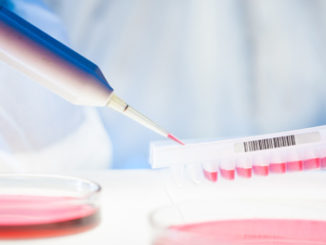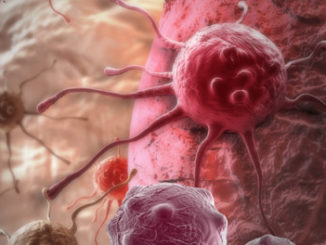Articles that explore the connection between epigenetics and diseases and disorders, including cancer, cardiovascular disease, diabetes, autoimmune disease, and more.
Is it possible for a drug to dampen a traumatic memory? It may be, as researchers are discovering that a fundamental epigenetic mechanism is responsible for long-term fear memory. Neuroplasticity, also called brain plasticity, refers to the changes in neural connections such as synapses and neural pathways as a result of changes in behavior, environmental exposure and neural processes (1,2). While it was once believed that the brain is a physiologically static organ and its networks were fixed, research over [more…]
The epigenetic signature for cardiac hypertrophy, which can progress to heart failure through an adaptive response of the myocardium to stress, is still poorly understood. The scientists at Humanitas Clinical and Research Center, Rozzano, Italy report on the genome-wide distribution of seven histone modifications in adult mouse cardiomyocytes subjected to a prohypertrophy stimulus in vivo. They found a set of promoters with an epigenetic pattern that distinguishes specific functional classes of genes regulated in hypertrophy and identified 9,207 candidate active [more…]
The scientists at Johns Hopkins University used a genome-wide pharmacologic transcriptome approach to identify two novel cancer-specific DNA methylation markers in cultured pancreatic cancer cells: BNC1 and ADAMTS1. Using a nanoparticle-enabled MOB (Methylation On Beads) technology, they found that these two markers are also frequently detected in serum samples of pancreatic cancer patients (N = 42) with a sensitivity for BNC1 of 79% and for ADAMTS1 of 48%, while the specificity was 89% for BNC1 and 92% for ADAMTS1. Overall [more…]
A new study from the scientists at the University of Southern California (USC) describes for the first time how natural killer (NK) cells, which are able to kill and contain viruses and cancerous tumors in the human body, can be manipulated by epigenetics. Through a series of experiments in mice, these scientists found that MYSM1, an enzyme in the body’s immune system that turns genes on and off by modifying proteins called histones embedded in DNA, is required for natural [more…]
Noncoding RNAs make up the majority of transcribed RNA and have a wide range of functions in cellular and developmental processes. Consequently, they are also implicated in the development and pathophysiology of many diseases and represent potential targets for therapeutic intervention. Scientists found that effective in vivo inhibition (or silencing) of microRNA, one class of noncoding RNA, has enabled to make groundbreaking discoveries about the contribution of these short regulating RNAs to some of the major human diseases, such as [more…]






